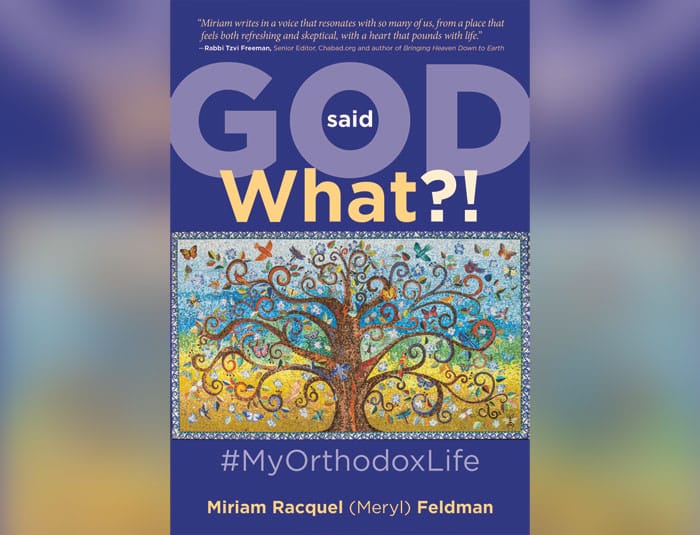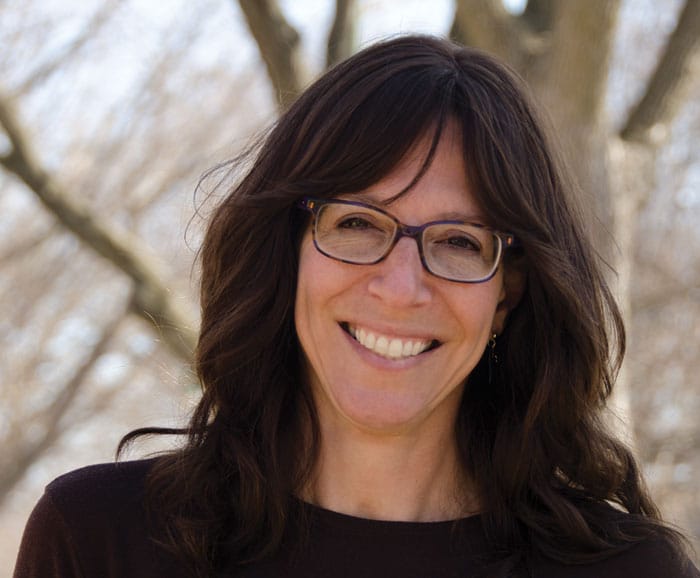
When Miriam Racquel (Meryl) Feldman was 23 years old, living a free-spirited hippie lifestyle in Berkeley, Calif., she received an alarming letter from David, her ex-boyfriend.
“I finished my program in Yugoslavia, traveled around Europe, earning my keep by playing guitar on the subways and now I’m in Israel!” David wrote. “I was hanging out at the Western Wall — it’s called the Kotel in Hebrew — and met a really nice man who invited me for a Sabbath meal. You know the Jewish Sabbath thing, right? From Friday night to Saturday night, you spend time together eating meals, singing, going to the synagogue and having really interesting conversations.”
David talked about how he was now studying in an Orthodox Jewish yeshiva and absolutely loving it. Feldman, who was a secular Jew and an atheist, was worried and shocked. Was David in a cult? She turned to a local rabbi she’d found in the Yellow Pages, who warned her about David.

“These very friendly Jews want to influence non-religious Jews to become Orthodox and change their lives around,” the rabbi told her. “They want them to live as they do and hold onto the relics of the past. You know, things like keeping the restrictions of the Saturday Sabbath and a kosher diet. They then marry them off and encourage them to have a ton of kids.”
“Do you live like that?” Feldman asked the rabbi. “No,” he said. “I’m different than the Orthodox; I don’t believe that those restrictions apply today.”
Feldman was scared about what was going to happen to David, so just two weeks later, she hopped on a plane to Jerusalem to rescue him. But when she got there, things didn’t go as expected. Instead of saving David from “the cult” of Orthodox Judaism, she connected with her Jewish roots and became a baal teshuva, writing her story in her new memoir “God Said What?! #MyOrthodoxLife.”
Feldman, who now lives in the Midwest, works as a somatic healer and is married to David, wrote her memoir to share her story and bring joy to other people’s lives.
“I felt compelled — and compelled is the word — to share my journey from an atheist to a woman of faith.”
“I felt compelled — and compelled is the word — to share my journey from an atheist to a woman of faith because besides the humor it could bring to others, it is a story of hope,” she said. “The hope that as humanity we are not heading towards self-destruction but towards a time of peace and goodness.”
The author grew up as a secular Jew in New York and rejected religion early on; she didn’t understand it, and what little she did know didn’t appeal to her. Most of her relatives had been murdered in the Holocaust and the three that survived had numbers tattooed on their arms. When she was in high school, she participated in a German exchange program, and came away with the conclusion that assimilation was the answer to hatred.
“The belief that I practiced was, ‘the more blending of people, the better,’” she said. “Basically, assimilation was the solution to antisemitism. If you join them, then they won’t want to kill you.”
But when Feldman traveled to Israel to meet David and subsequently enrolled in a seminary, she had a revelation that changed everything.
“I was at a Shabbos table, and after I got off my soapbox about assimilation being the key to get antisemites to stop hating us, the hostess said to me, ‘Don’t you know that German Jews were the most assimilated? They considered themselves Germans first, Jews second. And yet that did not stop their neighbors, co-workers, friends and government from killing them,’” she said. “That ‘aha’ landed deeply in my soul.”
Feldman’s path to observance took many twists and turns — for instance, she was drawn to Chabad-Lubavitch, while her husband was litvish (a non-Hasidic Haredi Jew) — but she ended up figuring out her place in the community. Today, she is a mother and grandmother, and she and David are still on their journey together.
“If we recognize that oneness bonds us together, then we can embrace this direction towards goodness and peace.”
She hopes that when people read her book, whether they are observant or secular, Jewish or not, they can understand that as different and complex as everyone is, we’re all unified in our purpose. “If we recognize that oneness bonds us together, then we can embrace this direction towards goodness and peace,” she said. “And that there is a plan. I wrote my book for people of any background and faith so it can easily be understood by all.”
Clearly, Feldman said, God has a plan for everyone. It’s up to us to try to tap into it and fulfill our life’s purpose, like she is still trying to do every single day. “We just have to open up our minds and hearts to see that,” she said. “We can all unite under the banner of bringing heaven down to earth. There is a beautiful garden in this world that Hashem wants to dwell in, and we are partners in making that happen.”





















 More news and opinions than at a Shabbat dinner, right in your inbox.
More news and opinions than at a Shabbat dinner, right in your inbox.